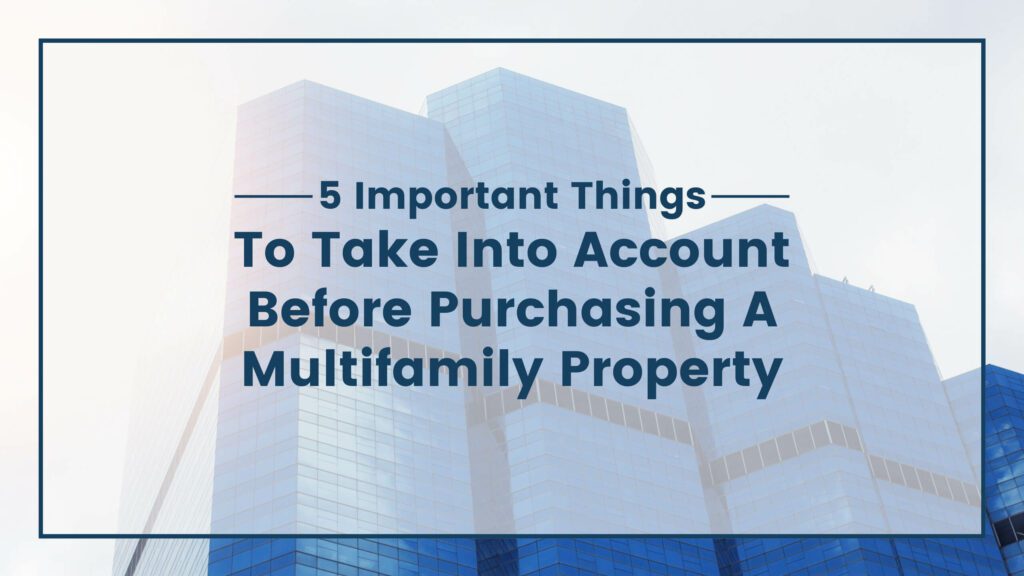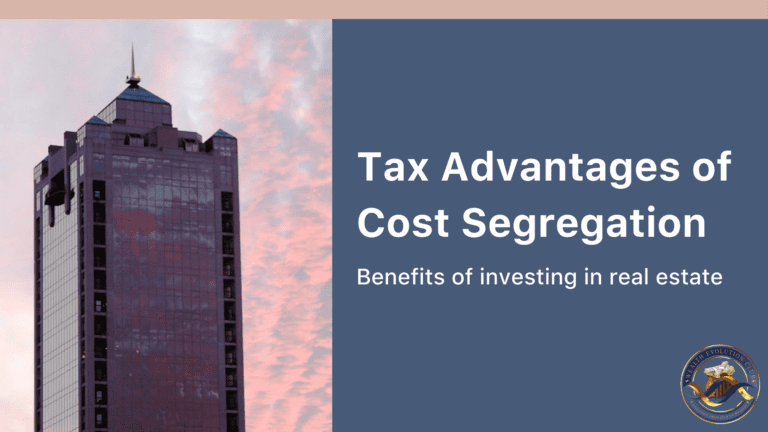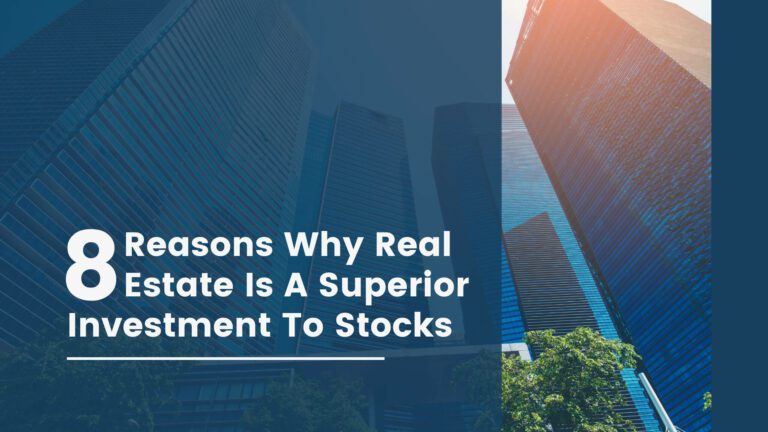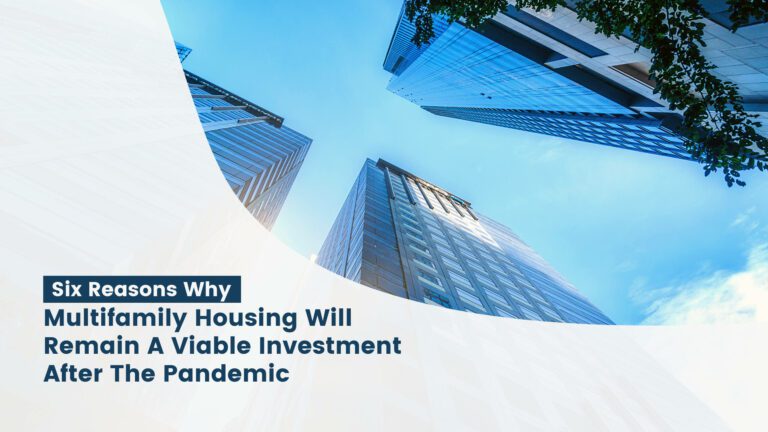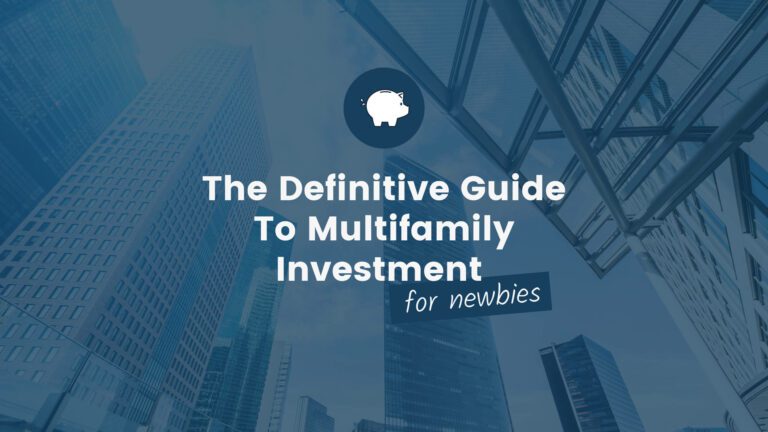Multifamily housing is one of the popular property classes in commercial real estate. The main draw of this property type is high positive cash flow. However, the profitability of a multifamily investment is not guaranteed. Several factors influence this asset type’s profitability, and it is compulsory to know the factors before investing.
This article provides a deep-dive review of the factors to consider before purchasing a multifamily property.
Before we begin, you should note that any investment property’s value is determined by the cash flow it creates. Investors are prepared to pay high prices (minimal capitalization rate) if they expect substantial ongoing increases in the house’s cash flow. Also, if the land offers a different value, investors are willing to pay more.
This isn’t always the case for residential properties. Cashflow typically grows as time passes, but issues like physical and functional obsolescence and local rent control can stunt cashflow growth. To overcome such problems, you need an active asset manager or manage your asset actively.
FACTORS TO CONSIDER BEFORE PURCHASING A MULTIFAMILY PROPERTY
1. LOCATION
If you have experience renting a home, you would understand that location determines rent. For example, rent in New York is way more expensive than rent in Mississippi.
So it follows that the location of a multifamily property you want to acquire will influence the potential cash flow. Other factors, such as the employment levels and regional economic drivers, have to be considered too.
A detailed study of the neighborhood is crucial if you want to make an informed buy decision.
Your study should answer fundamental questions like;
Is the location popular, or is it rising in popularity?
What is the demographic of the people living in the area?
Does the area have a blue-collar, white-collar, or no collar citizens?
Are big factories coming to the area?
Is the area accessible or closed off from amenities and transportation?
The above questions and more will help you understand the value of the property you want to purchase.
2. PHYSICAL CONDITION
This factor cannot be overemphasized. In multifamily asset investment, properties are classified from A to D based on their age, condition, location, and amenities.
Class A properties are less than 10 years old, located in prime areas, and in good physical condition.
The next class is Class B assets. These assets are over 10 years, but less than 25 years old. They are located on the outskirt of primary markets and have fewer facilities than Class A properties.
That said, Class C properties are built between 20 to 30 years. They are located in not so desirable neighborhoods and require significant repair to function again.
Lastly, Class D properties are over 30 years, situated in undesirable areas, and need a makeover.
This classification system makes it easy to sieve through property options. Before making a bid, it is recommended to assess the property’s foundation, roofing, HVAC system, plumbing, electrical, elevators, and buildings aesthetics (surface and windows).
3. COMPETING SUPPLY
Although there is hardly a glut in the supply of multifamily units, it is vital to check for competitors. In business, new competition is always a threat to progress. The same goes for real estate.
Consequently, you have to research the new construction permits and housing statistics to know whether the property market is saturated or stable.
Also, check for the local building laws such as zoning, building codes, and ecological impact studies and fees. Over the long haul, such regulations could cause local price appreciation to become higher than in the other areas.
4. VACANCY RATES
Tenant turnover is the enemy of cash flow. Consequently, it is essential to assess the vacancy rate of a property you want to purchase. A reasonable vacancy rate is below 7%; anything more suggests trouble.
Several factors can cause tenant turnover. For example, the location of the property may be unsuitable. It is also possible that the property has a bad manager.
That being said, an overview of past and present occupancy rates, both for the house and similar properties in the area, can give an investor insight into the property’s cash flow potential.
5. VALUE-ADD OPPORTUNITIES
An attractive benefit of a multifamily property is that the value can increase if it is remodeled. Simple changes like redesigning the façade or the remodeling of kitchen areas and baths can justify a higher rent and improve cash flow.
Multifamily units tend to generate ancillary sources of income. For example, amenities like a coin-operated laundry mart or a vending machine can improve your cash turnover. For this to work, you should open facilities that your tenants will use often.
SUMMARY
When done correctly, a multifamily asset can generate an ongoing stream of income for generations. However, individual investors find it difficult to manage multifamily properties because they are expensive and management intensive.
Most individual investors with a multifamily asset in their portfolio do so through partnership. They partner with real estate investment and asset management firms.
We can offer investors access to viable multifamily properties in the select Texas markets. We handle every detail, from sourcing to purchase and management. You can count on us to give you the advice you need to grow your wealth.

